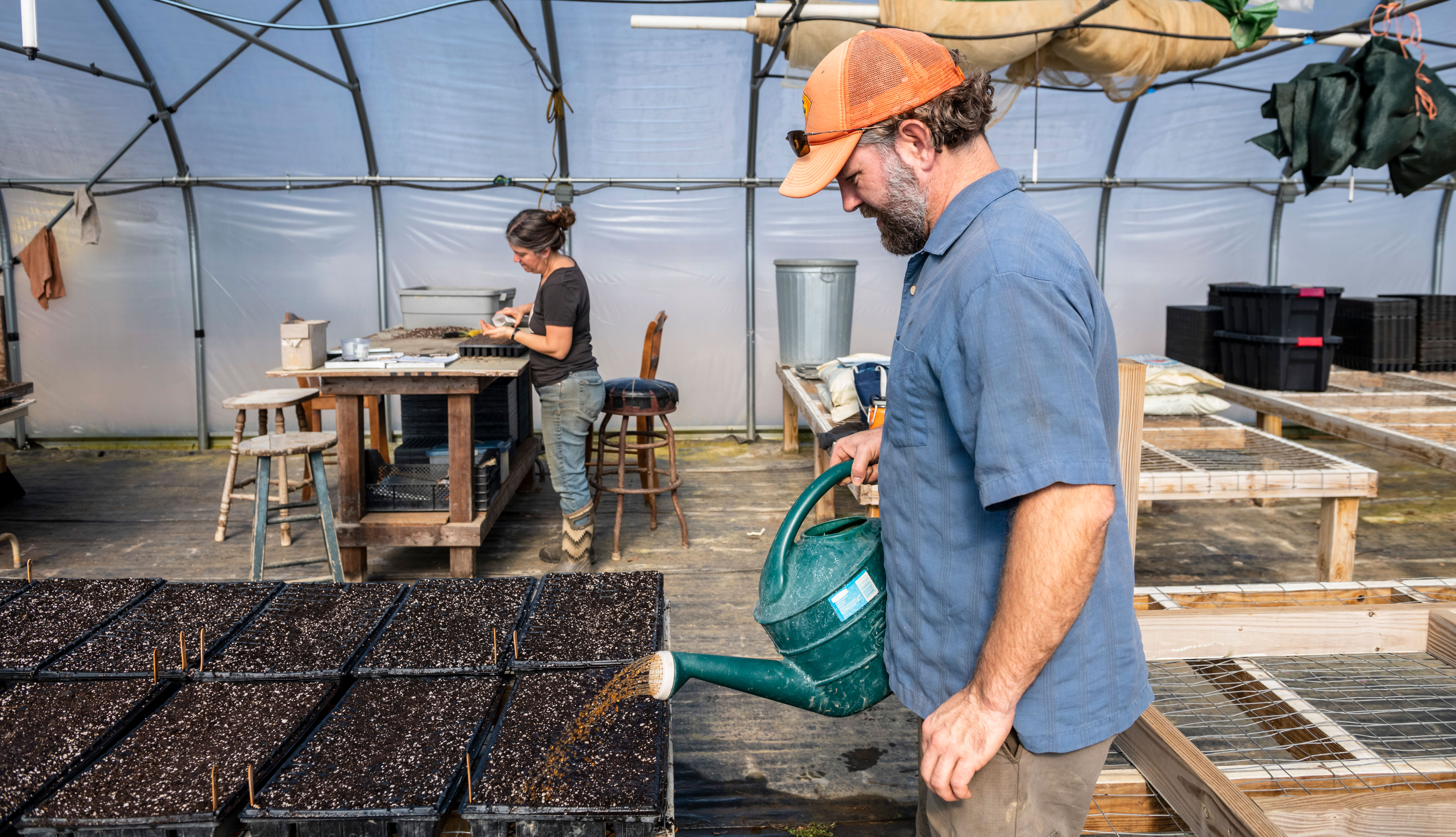AARP Hearing Center

John Good, a 43-year-old organic farmer, knows he should be saving more for retirement. But the pressing need to buy equipment for his 18-acre farm in the Lehigh Valley keeps getting in the way of his future.
“Are you going to put a few thousand dollars away into an IRA or spend it on a potato planter?” he asks.
Last summer he opted for the latter, which attaches to his tractor and spreads potato seeds. He spends 5 to 10 percent of his gross profits on new equipment for his farm.
Good said it would be much easier to build his nest egg if he could contribute a small amount of his earnings to an IRA each week. But like most small businesses, the Good Farm doesn’t have a workplace retirement plan in place for him, his wife, Aimee, and their seven employees.
That may change with Keystone Saves, a proposed IRA savings program for private-sector employers. The plan has bipartisan support from state legislators and strong backing from AARP.
It would automatically enroll employees, at no cost to businesses, in a program to be set up by the state and managed by an outside firm. Workers, who could opt out, would be able to select from various investment options.
“We want to put people in a position where they could retire with dignity,” said state Sen. Art Haywood (D-Wyncote), who has introduced a savings bill with Sen. Pat Browne (R-Allentown).
Lack of savings
A task force formed by state Treasurer Joe Torsella (D), including business and labor leaders, agreed last year that a state-facilitated savings option would help meet a critical need. Gov. Tom Wolf (D) has been supportive of the idea.
More than 2 million Pennsylvanians—44 percent of the state’s private-sector workforce—do not have a retirement plan through their employer. That puts some at risk of falling into poverty. Research shows that people are 15 times more likely to save if they have a plan at work.
A lack of savings can be disastrous, said Sarah Mysiewicz Gill, senior legislative representative for AARP and a task force member. “It means you won’t be able to pay the light bill or have food in the cupboard. It’s pretty scary.”
Almost half of American private-sector employees (about 55 million) do not have access to a workplace retirement plan, according to a report by the AARP Public Policy Institute.
If passed by the General Assembly, Keystone Saves would follow the lead of other AARP-backed programs such as those in Oregon, California and Illinois.
The proposed program would help companies recruit workers with an attractive benefit. It could also spare taxpayers the expense of more public assistance for retirees.
“It’s a win-win-win,” said Bill Johnston-Walsh, state director of AARP Pennsylvania.
The OregonSaves program became the first of its kind in the nation in 2017. Employee enrollment was 72 percent the first year, and workers have now saved more than $42 million.
Good said a retirement plan would not only benefit him and his wife but would also be attractive to his young employees, who could start saving early.
“You don’t have to make a big contribution,” he said. “You do it incrementally and you don’t even notice it.”
Cristina Rouvalis is a writer living in Pittsburgh.
More on State-backed Savings Programs































































